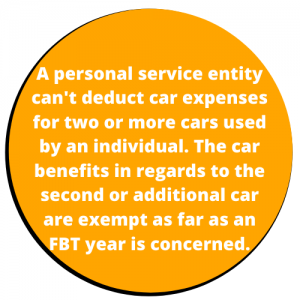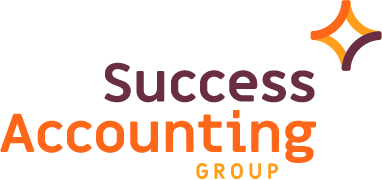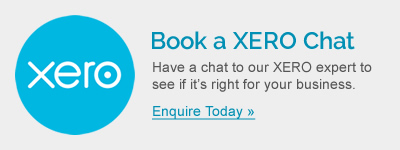WHAT IS A CAR FRINGE BENEFIT?

A car fringe benefit occurs when an employer provides a vehicle that they lease or own to an employee for their private use. In case you run your business under a trust or a company, you can qualify as an employee of that trust or company.
An employer may avail a car for the private use of an employee any day the car:
– is used for the private purposes of an employee or associate
– is not at the employer’s business premises and the employee has control of the car
– is garaged at or near the employee’s place of residence, whether or not the employee has been permitted to use it privately. 
How to Calculate the Taxable Value of a Car Fringe Benefits
There are two main methods of calculating a car fringe benefit’s taxable value
i) The Statutory Formula Method
ii) The Operating Cost Method
The Statutory Formula Method
This is the most preferred method of calculating the taxable value of a car fringe benefit since it doesn’t require a lot of record-keeping like the Operating Cost Method.
To calculate the taxable value using this method, you apply a statutory formula percentage to the price of the car at the time of purchase or lease. Your amount of liability reduces based on the number of days the vehicle wasn’t available for your private use as well as any contributions made by the employee towards the operating and maintenance costs of the car.
Base Value: For cars owned less than 4 years before the beginning of the FBT year, the base value is the original cost price of the car. For cars that have been owned for more than 4 years, the base value is two-thirds of the cost price.
Cost Price: This refers to the original purchase price of the car including GST and luxury car tax. It, however, doesn’t include registration, stamp duty, acquisition costs i.e. delivery, and non-business car accessories such as window tinting, fabric and rust protection, and paint protection.
Statutory Fractions: Since the beginning of April 2014, a 20% flat rate has been applied regardless of the total number of kilometers traveled during the FBT year. However, this doesn’t apply where there was already a pre-existing commitment before 7:30 pm, 10 May 2011.
Below is a table showing statutory fractions for pre-existing commitments
The Operating Cost Method
In this method, the taxable value is based on the proportion of private usage to the total costs of leasing or owning and operating a car in the FBT year.
Operating costs: Operating costs include the actual costs e.g. running costs (registration, insurance, fuel, maintenance, and repairs) and deemed costs which include interest and depreciation.
In case the car is leased, the leasing costs for the duration the car is used to provide fringe benefits are added to the operating costs.
If the employer owns the car, to calculate the deemed depreciation, the depreciated value of the car at the beginning of the FBT year is multiplied by the deemed depreciation rate applied during the car purchase. To calculate deemed interest, multiply the 2021 statutory FBT benchmark interest rate of 4.8% by the depreciation value of the car.
Logbooks. A 12-week logbook must be maintained in order to establish the applicable business usage of the car. The 12-week period is representative of the full FBT year use.
Even though an employer can utilize the operating cost method for a certain year that a logbook hasn’t been maintained, there won’t be a reduction in the car’s taxable value for any travels made for business purposes.
Private use: This refers to any use that isn’t meant for income-generating purposes. For instance, traveling to and from work is generally considered private use. Minor errands such as collecting mail also fall under private use.
Employee disbursement: Under the Operating Cost Technique, the car fringe benefit’s taxable value can be reduced by any unreimbursed incurred car expenses or contributions made by the employee.
Exempt Car Benefits
Work-Related Travel In Commercial Cars
Car benefits are exempt where the vehicle is a panel van, taxi, or any other road vehicle meant to carry loads, excluding passengers, of less than one tonne at a time. In addition, the private use of the employee is restricted to minor or incidental work-related travel such as irregular and infrequent to and from work travel.
Emergency Sevices Use Vehicles
Cars meant for emergency services that are kept or garaged near or at the employee’s residence fall under exempt car benefits when the car:
i) is an ambulance, police, or firefighting services vehicle
ii) has exterior markings indicating its use
iii) has a siren or flashing warning lights
Questions?
Cars Supplied By Personal Entities
A personal service entity can’t deduct car expenses for two or more cars used by an individual. The car benefits in regards to the second or additional car are exempt as far as an FBT year is concerned. Contact our office today for more information (03) 9583 0550 or send us an email.

About Lan Nguyen
Lan is the Founder and Chief Strategist at Success Accounting Group, Melbourne based CA firm. In a matter of short 8 years she has built up a reputable Chartered accounting firm with 3 offices and a team of 6 professional accountants and support team members. Her mission is to provide Innovative and Strategic Financial advice to help her customers make smarter financial decisions today for a brighter future.
Success Accounting Group is for established business owners who would like help to grow a sustained business. As a business owner you understand what drives your business success with our accounting team taking care of the rest.




